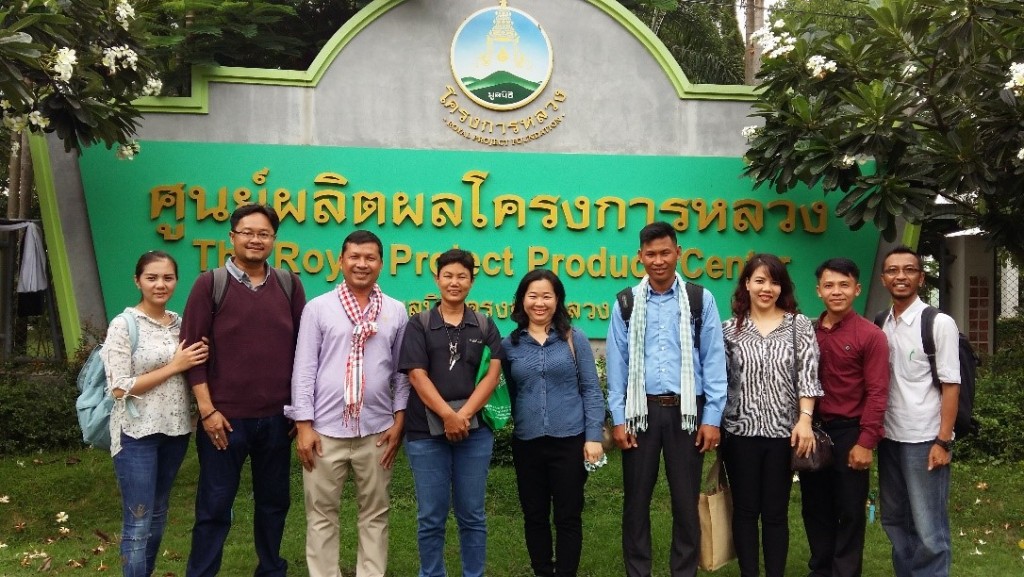ASEAN learns from ASEAN: Gaining insights into market trends and demand of food products

A study trip on experiences on the development of fruits and vegetables production in Thailand and trade fair visit was organized for integrated Public Private Partners (iPPP) from Cambodia, Indonesia and Lao PDR in Chiang Mai and Bangkok on 29 May – 1 June 2017.
The activity was facilitated by the “Standards in the Southeast Asian Food Trade” (SAFT) project. The purpose was for iPPP partners to learn and gain a better understanding of a successful development of fruits and vegetables production, as well as to gain an insight about market trends and demand of food products from local, regional, and international buyers. It is expected that lessons learnt during the study trip can be applied to iPPPs’ business in their country.

During the trip in Chiang Mai, Thailand, iPPP partners visited The Royal Project – Development Centre, Nong Hoi, the Royal Project Produce Center, as well as an organic farm. They learned about how the Royal Project managed the different steps along the supply chain from farm management, pre-and post-harvest handlings, sorting, packing, storage, and transport as well as the support it provides to highland communities. Issues and challenges were exchanged and shared during the visits. In Bangkok, iPPP partners visited the ThaiFEX, ASEAN’s largest food and beverage trade show. The participants learned about growing demands and concerns in Asia, and had the opportunity to exchange contacts with potential buyers or suppliers that could help extend their businesses in the future.

Standards in the Southeast Asian Food Trade (SAFT) project is a GIZ-supported project that advises the ASEAN Secretariat on the development and implementation of regional food standards for good agricultural practices (ASEAN GAP) and organic agriculture (ASOA).
There are 4 key areas of intervention that SAFT provides support on:
- Market Linkages: matching suppliers with traders and retailers
- Implementation and Controlling Structure: training inspectors, auditors and state supervisory bodies
- Enabling Environment: encouraging suitable incentives, policy and legal environments (by public sector) for successful implementation (by companies)
- Monitoring and Learning Platform: enhancing peer to peer learning between each of the ASEAN Member States
Weerinpat Janewatanakul
Regional Advisor,
Standards in the Southeast Asian Food Trade Project
Email: weerinpat.janewatanakul@giz.de
Website: https://snrd-asia.org/standards-in-the-southeast-asian-food-trade-saft

